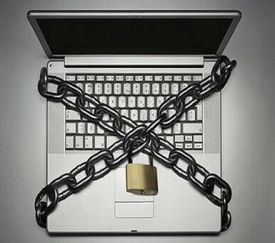The Indian city of Mumbai has long been dominated by hard-line rightist party Shiv Sena. So when its powerful head, Bal K. Thackeray died recently, the city effectively shut down in deference with shops closing for the day and workers going home.
 Annoyed with all this, 21-year-old medical student Shaheen Dhada took to Facebook to post a message expressing her feelings on the matter…
Annoyed with all this, 21-year-old medical student Shaheen Dhada took to Facebook to post a message expressing her feelings on the matter…
Why, she asked, should an entire city be involuntarily shuttered to mark the death of a politician? Her friend, Renu Srinivasan, 20, read the post and hit “like.â€
The post went up on Sunday. Within hours, a Shiv Sena official had complained to the police, who notified Ms. Dhada’s family. Intimidated, she quickly posted an apology and closed her Facebook account, her lawyer said. But by Monday, Ms. Dhada and Ms. Srinivasan had been arrested and charged with engaging in speech that was offensive and hateful — for a post that many experts say was neither.
Interestingly, the Philippine government may now be also legally armed with similar powers to haul Filipino armchair dissidents off to jail. Since the recent enactment of Republic Act 10175 a.k.a. the Philippine Cybercime Prevention Act of 2012, social media commentators have speculated on the scope of these powers, insisting that even innocuous messages published on social networking sites like Facebook and Twitter could be used by the rich and powerful to harrass their critics.
| SUPPORT INDEPENDENT SOCIAL COMMENTARY! Subscribe to our Substack community GRP Insider to receive by email our in-depth free weekly newsletter. Subscribe to our Substack newsletter, GRP Insider! Learn more |
The Thackeray incident, not surprisingly, attracted a wave of criticism directed against India’s anti-cybercrime laws not unlike the raft of online criticism that the Philippines’ RA 10175 drew…
Much of the criticism voiced online and by legal experts [in India] has focused on the Information Technology Act of 2008. The law was overhauled after the November 2008 terrorist attacks in Mumbai to grant the government broader powers to combat cybercrime, among other things.
Yet many critics and legal experts argue that politicians, in some cases, are using the broad language to stifle dissent. This month, a man in southern India, writing on Twitter, suggested that the son of India’s finance minister had amassed huge wealth through corruption. The minister’s son filed a complaint with the local police, who quickly arrested the author of the Twitter comment.
“The law is so broad, it gives unbridled power to the authorities to register a case,†said Pavan Duggal, a lawyer who practices before India’s Supreme Court and specializes in Internet law. “It leaves everything to the subjective discretion of the law enforcement authorities.â€
For now, Filipino netizens are safe from RA 10175 whilst it languishes under a temporary restraining order slapped by the Philippine Supreme Court. Just the same, considering the tough conditions Philippine Law requires for a complaint of libel to be pursued, it is unlikely that RA 10175 will be used with the same lack of restraint with which its Indian version is being applied.
awww.. Benign0, your blog had been dishing out commentaries against the present government which are much more incendiary than those comments from mumbai netizens’ and nobody tries to pull down your blog or put manacles on you…
We are more tolerant than those fascists, and Philippine bloggers, though many are licentious are still out on the loose.
Besides, it will create an international hoopla if an Australian resident like you gets serve with a warrant from a Philippine Court.
So you think the Philippine Law will get you for expressing your ‘free speech’ in Australia? — Perish the thought!
“Nobody tries to pull down Benign0’s blog” because of the TRO. Let’s wait until the TRO is lifted and I am sure people left and right will be hauled to jail by this repressive government.
Lifted in February, one month into the electoral disarmament policy.
First, they disarm you.
Then, they gag you.
What’s next?
There is already a libel law defined and punished under the Revised Penal Code. This can provide a basis for pulling down a blog, or even suing the blogger. But give it to boisterous press which stymied the efforts of those who would want to curtail press freedom.
The cybercime law does not have any teeth, with or without a SC TRO. Besides being jailed for expressing one’s view is a small price to pay. Primitivo Mijares, Jr., Jose P. Rizal and others paid their lives for it.